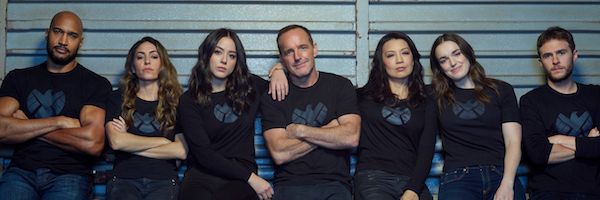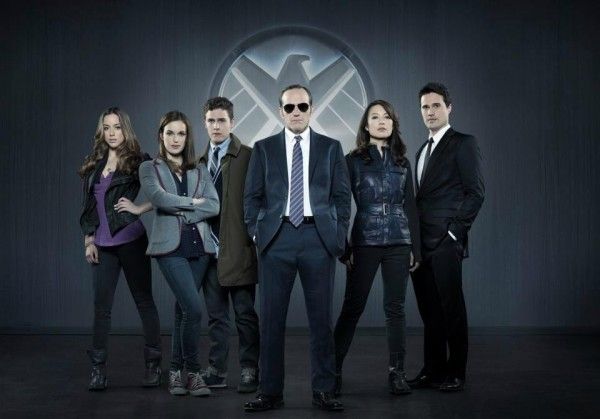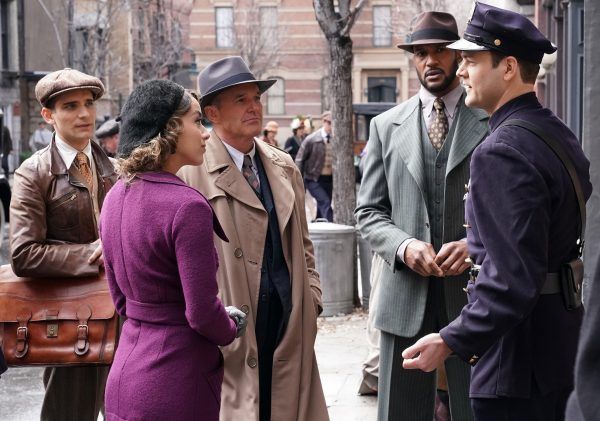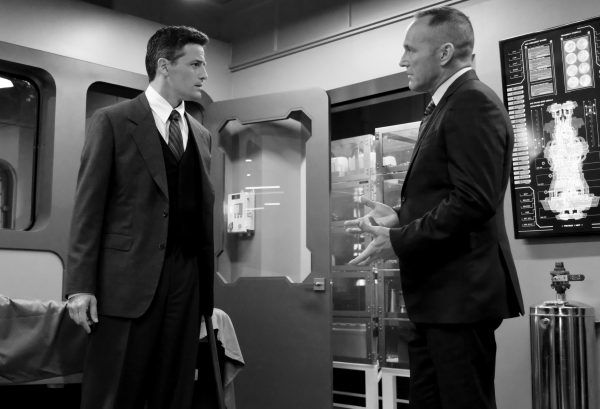Fans of the Marvel-verse who signed up for Disney+ may be surprised to discover that the long-running Marvel's Agents of S.H.I.E.L.D. is not among its offerings. Despite the impressive array of MCU titles, all six seasons of ABC's surprisingly long-lived live-action spinoff still reside on Netflix, and the final installment will join them there by month's end. As Disney+ could have used bringing aboard Marvel's long-ignored bastard child, there's an irony to that. Marvel's Agents of S.H.I.E.L.D. spent nearly the entire decade beating the odds to run a full seven seasons. Now, by a twist of fate, the final, long-awaited Season 7 holds the improbable position of being Marvel's best release of 2020.
I like to call Marvel's Agents of S.H.I.E.L.D. "The Little Show That Could." When it first premiered back in 2013, it was one of ABC's most highly anticipated television season releases. The series was a sidecar spinoff of 2012's The Avengers, which had shattered box office records upon release, promising to bring back the film's sacrificed character, Agent Phil Coulson (Clark Gregg), along with a new team. The series also hinted it would tie back to the big-screen releases of 2013 and 2014, making it a must-watch for Marvel fans.
But the now-defunct Marvel TV did the show dirty in its hamfisted attempt to simultaneously link the series to the films and make a prestige-TV-like show on a broadcast network. The 22-episode format was too long; the series spent weeks treading water to have the big beats match up with what was then all of two major films a year. The first season quickly tanked, sliding from 12 million who watched the premiere to 5 million by season’s end, and despite everything, it never recovered in the linear TV ratings.
After Season 2 failed to turn things around, with ratings dipping into the 3 million range, the series was more or less left to its own devices. That’s when Marvel's Agents of S.H.I.E.L.D. discovered how to be a pretty good series. Moreover, it managed several things no one else in the MCU seemed to get a handle on. It created the best star-crossed romance in the whole franchise with the couple known as "Fitzsimmons," Leopold Fitz (Iain De Caestecker) and Jemma Anne Simmons (Elizabeth Henstridge). It built a diverse cast over the seasons, ultimately creating a line up of leading characters played by Ming-Na Wen, Henry Simmons, and Natalia Cordova-Buckley, a stark contrast to the big screen films' very white world.
Moreover, it incorporated Marvel plotlines that the rest of the franchise struggled with, from body doubling with Life Model Decoys to post-apocalyptic space-based seasons. The series experimented with creating alternate universes where Hydra reigned supreme. (Don’t worry, it was actually just a computer simulation created by an android who was in love with Fitz.) It took the character Skye (Chloe Bennet), renamed her Daisy/Quake, and used her as a jumping-off point to create Inhuman characters we cared about. (Too bad The Inhumans could not do the same.) It added the alien race known as the Kree, and used them as efficient baddies years before Captain Marvel came along. And it managed to screw up at least one familial timeline, though the good news was Deke Shaw (Jeff Ward) never attempted to sleep with either Fitz or Simmons before realizing they were his grandparents. Part of the reason it was able to do so many plots within a seven-season arc was by "podding," some of the earlier, longer seasons, splitting the 22-episodes into seven or eight-episode sub-seasons. In effect, it figured out how to take a broadcast show and do a prestige TV series within the format, something other genre series would do well to study.
As other spinoffs like Marvel's Agents Carter came and went (or, like Marvel's Most Wanted, never materialized), Agents of S.H.I.E.L.D. quietly racked up a loyal fanbase and decent enough delayed viewing numbers to keep it on the bubble. From there, Marvel could reasonably put its thumb on the scale and force continuing renewals. Even so, when ABC finally declared Season 7 would be the last one almost a full year before it aired, no one argued that it wasn't time yet.
Season 7 had a tough assignment: take 13 episodes and tie up six years of disparate threads together into a final season acknowledging all that came before, from the early years when Samuel L. Jackson made appearances to more recent characters like alien anthropologist Enoch (Joel Stoffer). That it accomplished this without leaving anything out was pretty remarkable, considering the show also had to contend with its hasty decision to kill Coulson off again in Season 6, under the assumption that was the final season. The series made it work by turning to time-travel, the one sci-fi trope it hadn't tried yet, as a way to help tie up these loose ends, while Gregg wound up playing Coulson as a Life Model Decoy. (Well, sort of. At one point, he gets saved to a hard drive. As you can imagine, it's complicated.) The series even succeeded in bringing back Agent Carter's Daniel Sousa (Enver Gjokaj) as part of the main cast, paying tribute to the other fan-favorite show.
But even as the series succeeded in giving fans the closure they deserved, Marvel treated this final entry as an afterthought. With a premiere originally set after Phase 4 and Black Widow's debut, it was the last vestige of another time, a farewell to a show that somehow lasted when no one was looking.
Then, the pandemic happened. The year 2020 was arguably the most important to the Marvel Cinematic Universal franchise going in, a delicate dance to follow up the 22-film Infinity Saga with a brand new rebirth. And instead, nothing happened. Black Widow has now moved wholesale to 2021 in hopes of theaters being open by then. Moreover, the MCU had hedged on its much-ballyhooed second attempt at creating TV spinoffs on Disney+. Initially, the plan was to hold off until the streamer was established and show up with TV series several months in, after Black Widow's big-screen debut.
This misjudgment was understandable from a conservative perspective; Disney's most successful brand did not wish to tie itself to a risky venture right out of the gate. But it also meant Marvel wasn't ready when viewers all turned their eyes to streaming. The show that was supposed to kick off Marvel's Disney+ reign, The Falcon & The Winter Soldier, currently remains unfinished. WandaVision is expected to squeak in at the tail end of the year, but Disney+'s once-a-week scheduling of series means the bulk of that show won't arrive until 2021.
Other than the critically-panned Helstrom on Hulu, Marvel's only major release of 2020 wound up being Agents of S.H.I.E.L.D. And the show happily stepped up to fulfill fans' expectations, just as it has tirelessly for years. It's a triumphant ending for a series everyone wrote off at one point or another. Agents Coulson would approve.
Marvel's Agents of S.H.I.E.L.D.'s final season arrives on Netflix on Oct. 30, 2020.




